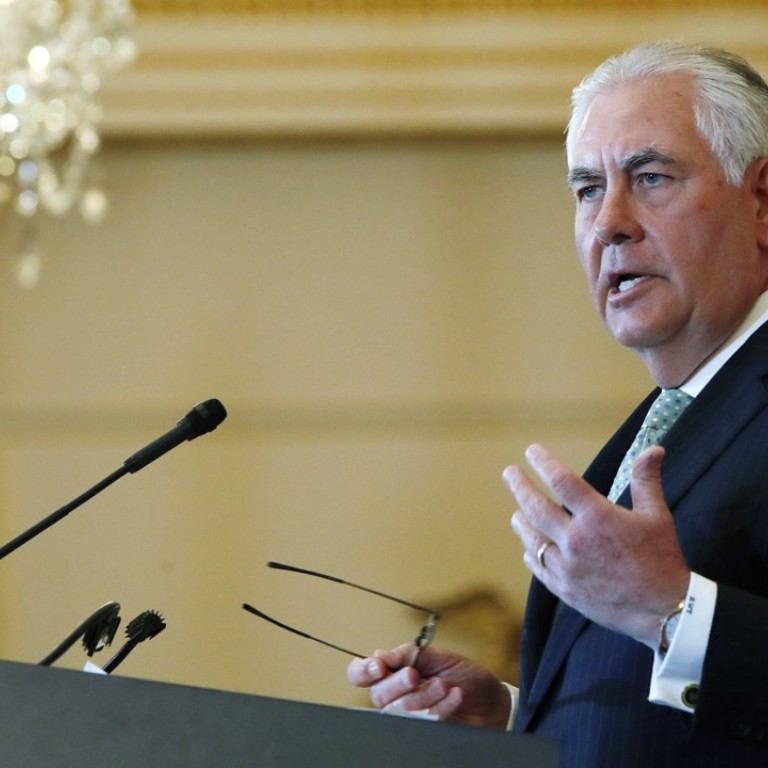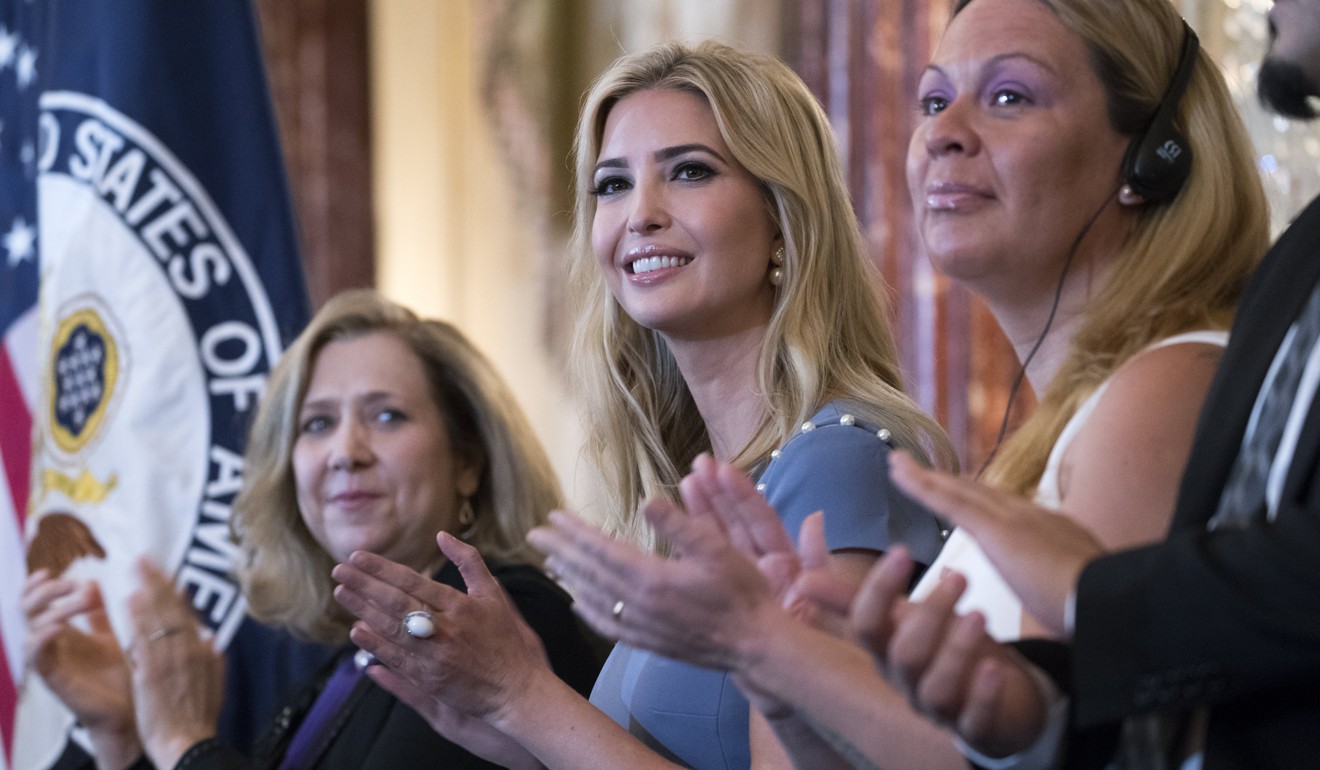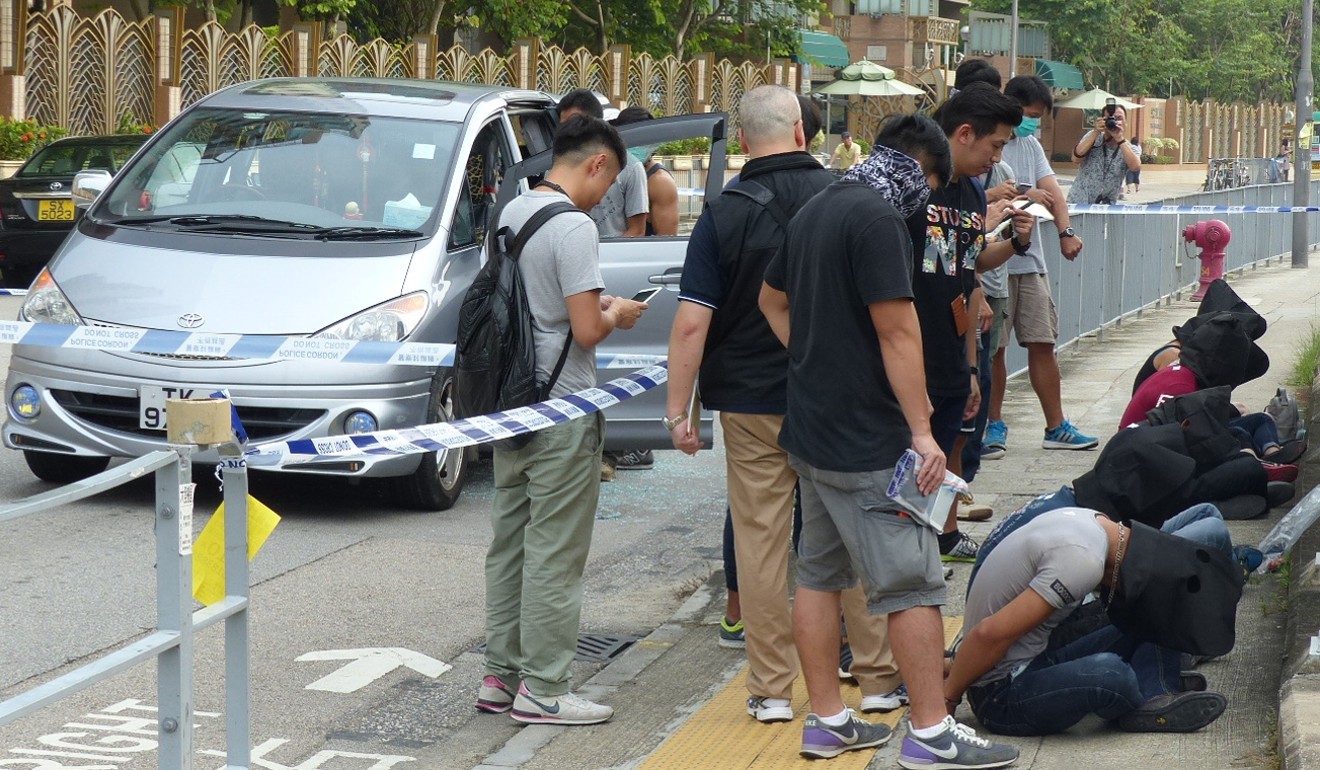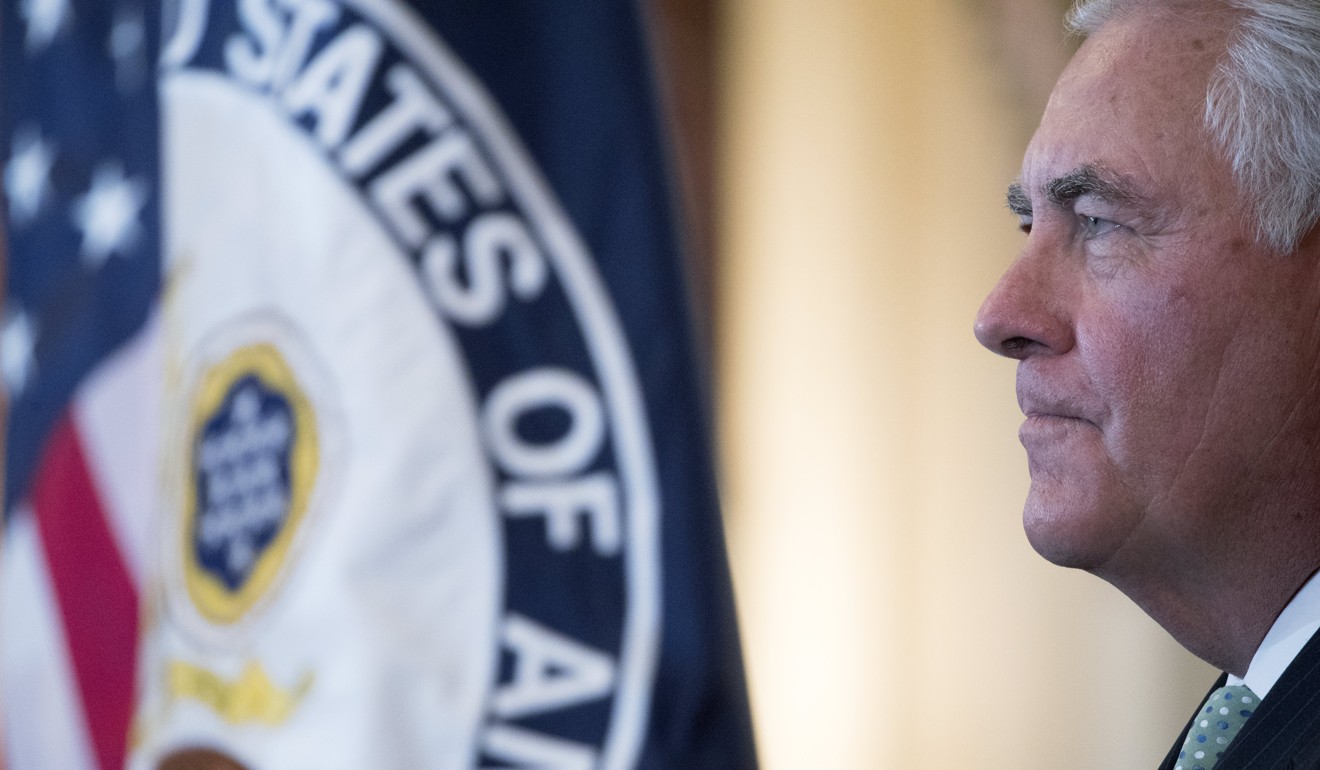
US ranks China among worst human trafficking nations, risking a Beijing backlash
US State Department’s annual report on human trafficking and forced labour puts China in same tier as North Korea and Syria
The United States downgraded China in its annual report on human trafficking and forced labour, putting the country in the same tier as North Korea and Syria, triggering a diplomatic backlash from Beijing.
Using information from human rights organisations and media, the US State Department’s 2017 Trafficking in Persons Report cited forcible repatriation of North Koreans without screening for indications that they had been trafficking victims and coercion of Uygurs by local officials into forced labour.
An international human trafficking expert said the problem existed in China despite efforts by Beijing to alleviate the problem.

The report put China in “Tier 3” – the lowest of the four categories of violators – after assessing information including government complicity in trafficking and arrests of women and children caught up in trafficking for prostitution. The others are Tier 1, Tier 2 and the “Tier 2 Watch List”.
The report also cited frequent cases of Chinese nationals working against their will in massage parlours and construction sites in other countries.

US Secretary of State Rex Tillerson accused China on Tuesday of being irresponsible in allowing North Korean “forced labour to generate illicit sources of revenue” in China and letting “most of that” revenue go directly to the North Korean government. “The North Korean regime receives hundreds of millions of dollars per year from the fruits of forced labour,” Tillerson said in his remarks on the report.
Before it was released, Chinese foreign ministry spokesman Lu Kang on Tuesday hit back at the US, saying Beijing strongly opposed the US using its domestic laws to attack another country’s record, and the results of its anti-human trafficking efforts were “obvious for everyone to see.”
Matt Friedman, a human trafficking expert, said China had attempted to tackle the issue but it was challenging given its size. “The difficult thing in China is that you have 1.3 billion people and to carry out their plans and activities down to the general public is a very difficult process,” he said. “Their plans and approaches are good and it is often difficult to implement them.”
He said Washington had criticised Beijing because of the large number of victims in China despite its efforts. Friedman also said that citizens of North Korea were subjected to state-imposed forced labour. “These individuals often work long hours in agriculture, logging, construction, mining and garment industries, with all of their pay going to the government of North Korea,” he said.
Some observers were sceptical about the ranking. If the downgrade is to press China to do more on North Korea “it won’t help”, said Douglas Paal, vice-president of studies at the Carnegie Endowment for International Peace.
Zhang Liangui, a professor at the Central Party School, said North Korean workers overseas provided stable income for Pyongyang. “It seems the US wants to cut this source of income,” Zhang said.
The US report also said the Hong Kong government had continued to fail in tackling cases of forced labour and human trafficking because it lacked laws that effectively deterred such crimes.
The city was placed on the Tier 2 Watch List for the second consecutive year, putting Hong Kong on par with countries like Iraq and Rwanda.
“The government did not demonstrate increasing efforts compared to the previous reporting period,” the report read.
Authorities “prosecuted only five cases of labour exploitation with indicators of trafficking, and Hong Kong’s laws do not criminalise all forms of trafficking, resulting in cases of forced labour being prosecuted under lesser crimes with sentences insufficiently stringent to deter trafficking crimes”, the report said. “Hong Kong is primarily a destination, transit, and to a much lesser extent, a source territory for men, women and children subjected to forced labour and sex trafficking.”
A spokesman for the Hong Kong government said it “vehemently rejects Hong Kong’s grading in the [report]”.
Hong Kong-based human rights lawyer Patricia Ho said the report was a fair assessment of the government’s efforts on human trafficking. “In my practice, I continue to be shocked at the government’s decision not to prosecute agencies and employers who have been clearly involved in human trafficking and infliction of forced labour,” she said. Ho led a landmark judicial review in December in which the court said Hong Kong lacked an “effective framework or set of measures to address human trafficking or forced labour.”
Additional reporting by Eva Li, Kristin Huang and Associated Press




